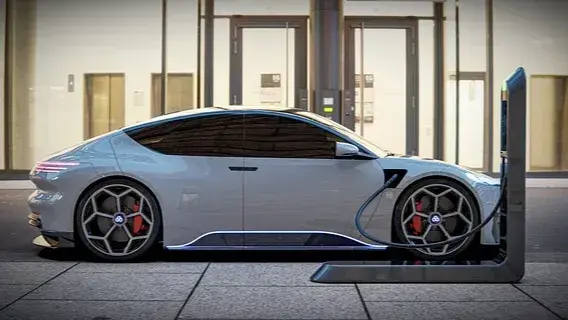Updated 24 March 2024 at 13:07 IST
India's EV foray may bring large-scale Chinese firms to domestic market: GTRI
India's auto component imports were $20.3 billion in 2022-23, with 30 per cent of them coming in from China.
- Republic Business
- 4 min read

EV push: The Indian government's push to propel indigenous manufacturing of electric vehicles (EVs) may result in the large-scale entry of Chinese auto firms in the domestic market, as per a report by think tank GTRI.
China's automotive industry, elevated by a sizable push from the state, has seen a swift rise in electric vehicle technology, resulting in it becoming a frontrunner in EVs and related components, the Global Trade Research Initiative (GTRI) said.
The revised policy initiative for India to become a hub for e-vehicle manufacturing and efforts of the private sector will result in a steep rise in dependence on auto component imports from China, as per the report.
India's auto component imports were $20.3 billion in 2022-23, with 30 per cent of them coming in from China.
With EVs gaining more attention in the country, auto component imports from China are likely to see further uptick since they have a greater hold over the supply chain of EV components. If estimates are to be believed, China has 75 per cent of the world's battery production capacity. Notably, battery comprises of 40 per cent of an electric vehicle’s cost. It also accounts for over 50 per cent of global EV production and exports.
In the next few years, every third electric vehicle and many passenger and commercial vehicles on India roads could be those made by Chinese firms in India alone or through Joint Venture with Indian firms, as per the report.
"China's EV exports to the European Union and the United States are declining due to anti-subsidy probes and increased trade restrictions over the export of subsidised cars/EV batteries," he said.
JSW MG Motor India, which is a joint venture between China's SAIC and Indian conglomerate JSW Group, recently announced a capital infusement of Rs 5,000 crore to elevate production capacity and bring forth one new car every 3-6 months from September.
China’s biggest automaker SAIC Motor also signed a joint venture with the JSW Group in November last year to accelerate the transformation and growth of MG Motor in India.
As per the JV, the merged entities aim to sell one million units of passenger electric vehicles in India by 2030, with the total market expected to reach 10 million units per year.
Notably, SAIC Motor is the parent company of British brand MG Motor. SAIC Motor is headquartered in Shanghai.
GTRI said that apart from SAIC Motors, other Chinese car companies like BYD Auto have positioned themselves in India by with options for electric vehicles encompassing buses, trucks, cars, and SUVs.
"Other Chinese companies, including Changan Automobile, Jinko Solar, and several bus and truck manufacturers like Zhongtong Bus and Foton Motor, also contribute to China's automotive presence in India," Srivastava said, adding that Great Wall Motors and Haima Automobile are also looking to enter the Indian market, indicating an increasing Chinese influence in India's automotive sector.
India’s automobile industry contributes 7.1 per cent to the country's GDP, which has gone up from 2.8 per cent in 1992-93, the report highlighted.
It contributes to employment opportunities for over 19 million individuals directly and indirectly.
"The large-scale entry and market dominance of Chinese automakers in India will impact the domestic auto/EV manufacturers, firms working in EV value chain space, and battery import most parts and components from China,” it underlined.
China has robust plans to elevate its passenger vehicle and commercial vehicle presence in India, after flooding the market with e-rickshaws and two-wheelers, it added.
The government and industry stakeholders are required to meticulously manage any risks of over-depending on foreign manufacturers and potential trade imbalances, the report suggested.
"India's decision to allow Chinese car makers in India and cutting import tariffs on electric vehicles (EVs) will benefit Chinese manufacturers directly or indirectly being the dominant suppliers of EV batteries. Supply chain dependence on China will sharply increase even when non-Chinese companies (Tesla, Vinfast) set shop in India," Srivastava said.
Of late, India announced an EV policy which brings down import duty on electric vehicles (four-wheelers) from 70-100 per cent to 15 per cent in case of a foreign company investing a minimum of $500 million in the country in the sector.
(With PTI Inputs)
Published By : Gauri Joshi
Published On: 24 March 2024 at 13:07 IST
